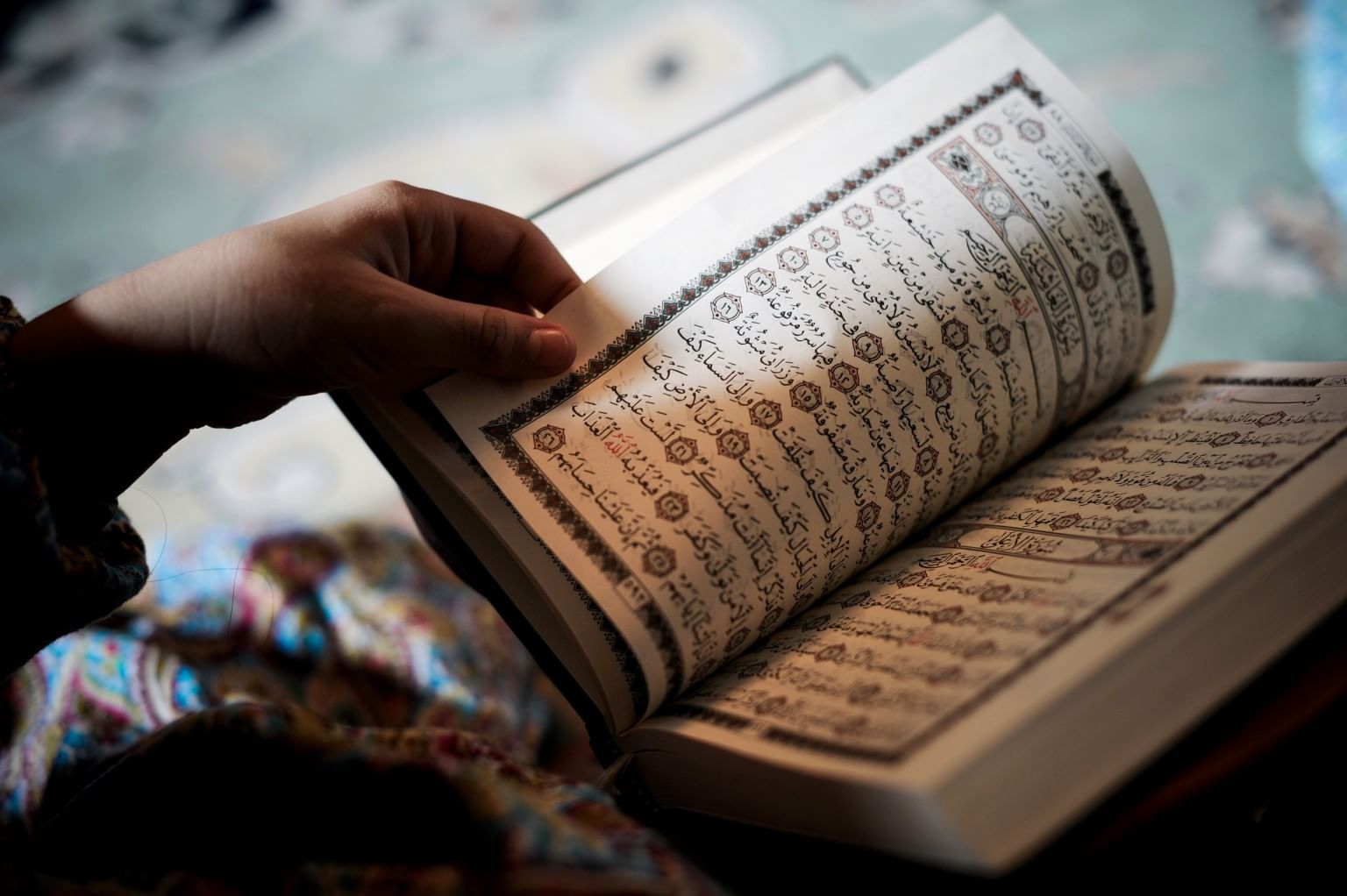- +201040914066
- info@quraaany.com


Tajweed guarantees that the Quran is recited accurately, beautifully, and as the Prophet ﷺ received it. This blog examines Tajweed rules for beginners, its significance, and how it strengthens your relationship with the Quran. Discover its background, fundamental guidelines, and how to begin your Tajweed adventure right now.
Tajweed rules for beginners
The principles for improving the recitation of the Quran and Tajweed rules for beginners, known as Ahkam al-Tajweed, center on appropriate pronunciation, pauses, and elongations. Ibtida (beginning) and Waqf (stopping), which specify when to pause and restart recitation, are important guidelines.
While Hamzat al-Wasl deals with the pronunciation of connected Hamza, Harakat handles vowel sounds and elongations.
There are particular guidelines for emphasis (tafkhim) and softening (tarqiq) in the letter “Raa.”
To guarantee precise and understandable recitation, further principles like Iqlab, Ikhfaa, and Idgham handle sound transformations and assimilations.
This post will discuss some fundamental Tajweed norms that you need to be aware of in order to pronounce Qura’nic words correctly and enhance your recitation abilities.

Together, let’s explore them:
What Do Tajweed Rules for Beginners Mean?
According to what Muslims have learned from the Prophet Muhammad, peace be upon him, Tajweed regulations, also known as Ahkam al-Tajweed, are the rules that a reader of the Quran must follow when reciting the text. Tajweed is a symbol of perfection and progress.
As a result, the goal of Tajweed’s regulations is to improve and perfect Quranic recitation.
The main advantage of Tajweed regulations is that they help readers and listeners accurately comprehend the meanings of the Quran by clarifying the recitation rules and enhancing the pronunciation of Quranic phrases.
Tajweed guidelines, which emphasize pronunciation, pauses, and elongations, serve as a guide for proper Quranic recitation. Tajweed regulations like: Where to halt during recitation is determined by waqf, or pausing; there are two sorts of pauses: mandatory stops resulting from accidental reasons and discretionary stops based on significance. After a break, ibtida (beginning) determines where to continue recitation, making sure the beginning reflects the desired meanings.
Harakat also relates to the timing of vowel sounds and elongations; ghunnah represents the nasal sounds of certain letters, while madd extends sounds according to context.
Pronunciation guidelines for words that begin with a connecting Hamza are part of Hamzat al-Wasl.
Additionally, according to diacritical markings and circumstances, the rules for the letter “Raa” include softening (tarqiq) and emphasis (tafkhim). While ikhfaa entails incomplete pronunciation between assimilation and unambiguous articulation, iqlab is the conversion of “nun” into “meem” before to “ba.” Idgham distinguishes between lip, partial, and complete idgham by combining sounds in particular settings.
Additionally, Sefat Al-Huroof explains the qualities of letters for proper pronunciation and differentiation, whereas Makharej Al-Huroof outlines the articulation sites of letters.
Tajweed’s objective
Every syllable in the Qur’an is from Allah, making it the word of Allah. It is important to take its recitation extremely seriously.
The Tajweed rules for beginners and main goal of the Science of Tajweed is to teach the reciter how to recite the Qur’an accurately, without exaggeration or inadequacy, while adhering to the rules and characteristics that apply to each letter. Thus, in the classical Arabic dialect that it originated in, the reciter might recite the Qur’an in the manner of the Prophet (sallallaahu alaihi wa sallam), who got it from Jibreel, who received it from Allah (subhanahu wa ta’aala).
Every Arabic letter has its own Sifaat, or distinctive qualities, as well as a Makhraj, or exit or articulation point, in the mouth or throat from where it originates.
An essential component of Tajweed is being aware of each letter’s Makhraj and Sifaat. Sometimes the exits of two letters are so similar that it’s simple to mix them up. Therefore, there is a risk that someone who is unfamiliar with the characteristics of each letter would misinterpret the meaning of the sentences when reciting the Qur’an. The reciter can avoid making errors when reciting the Qur’an by adhering to the Tajweed principles.
Fundamentals of Tajweed & tajweed rules for beginners
The following fundamental principles of Tajweed, notwithstanding its complexity, aid in directing the recitation of the Quran:
Makhaarij, or Articulation Points: The way each letter is pronounced in the Arabic alphabet depends on its particular point of articulation.
For instance, certain letters are articulated from the mouth or lips, while others are spoken from the throat.
Sifaat (Letter Characteristics): Each letter has unique qualities (such as being heavy or light, sharp or soft) that affect its tone and sound when spoken, in addition to the articulation points.
Idgham (Merging Letters): In some situations, letters are combined or blended during recitation in order to preserve the uninterrupted flow of the speech.
Ghunna (Nasalization): The length and tone of the recitation may change depending on which letters need to be uttered with a nasalized sound.
Madd (Elongation): To highlight particular words or meanings, some vowels and letters are lengthened. For example, altering a vowel’s length might alter a verse’s meaning or intensity.

Read More: Learn quran tajwid (FAQs)
Summary of tajweed rules for beginners
There are several different and very complex Tajweed rules. A clear and steady scientific process should be followed by those who want to study them.
Tajweed is concerned with all aspects of the Quran’s recitation, including how its words and letters are spoken.
As a result about tajweed rules for beginners, its regulations are extensive and include:
- Tanween and Noon Saakinah rules.
- Madd’s rules and kinds.
- Hamza’s rules and varieties.
- Guidelines for pausing and beginning that address the Quran’s halting places and reciting points to ensure that no meaning is lost.
- The length, letters, and rules of Idgham, Iqlab, and Ghunna.
- Features of letters and their sites of articulation.
Every rule has subcategories that are derived from and fall under it. In order to make it easier for people to understand this noble science, scholars have organized them in a number of books, written lengthy and thorough works, and simplified some rules for beginners. This will allow people to learn Tajweed gradually and become accustomed to the rules and proper pronunciation in a straightforward way. We pray to Allah that the Quran would help us both here on Earth and in the Hereafter.